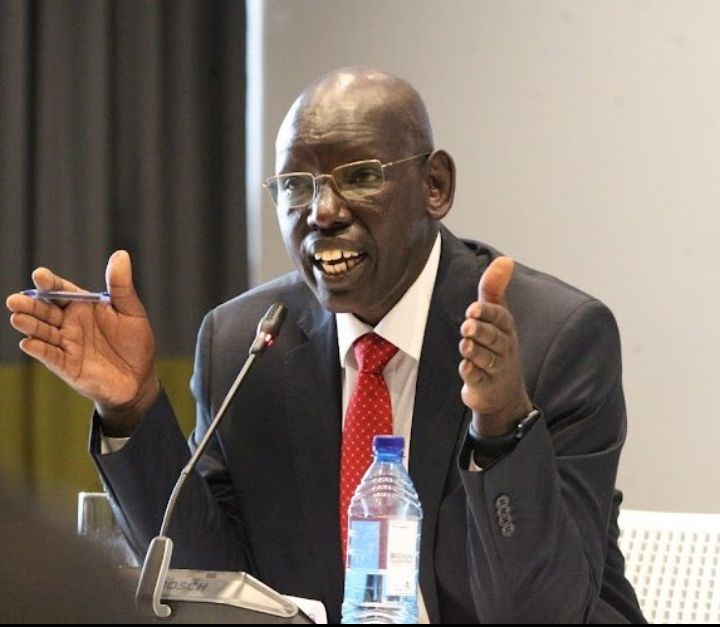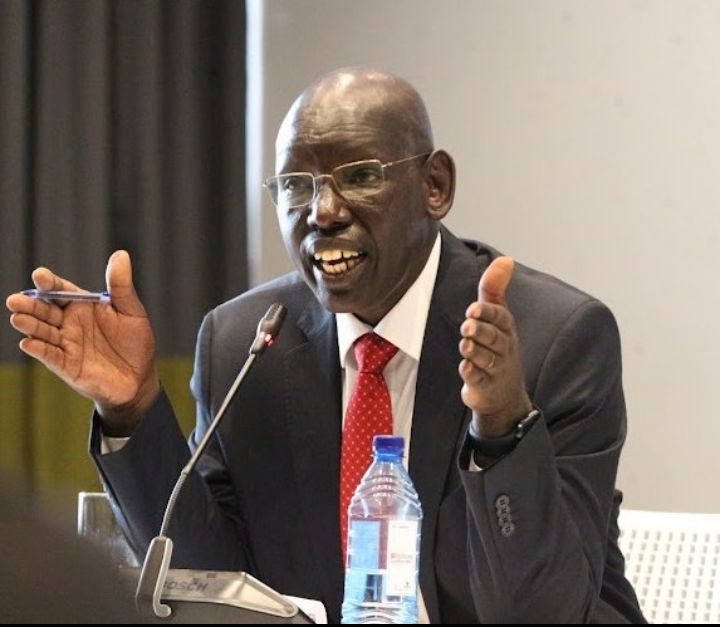
Principal Secretary, State Department of Basic Education Dr Belio Kipsang’ announces disbursement of Sh 16.25 billion in two weeks time
KNUT had complained of unsmooth running of school activities due to financial constraints
Kipsang’ urges parliament to increase budget allocation to secondary schools pupils since the number has grown to 4.2 million
The State Department of Basic Education is poised to disburse Sh 16.25 billion, equivalent to 25 percent of the outstanding capitation funds owed to public secondary schools across the nation, within the next 10 days.
Dr. Belio Kipsang, Principal Secretary of the State Department for Basic Education, announced this even as he decried the government’s struggle to finance the increasing student population.
As of the end of January 2024, the PS noted the student population has risen by one million, posing a significant challenge to government funding.
Appearing before the National Assembly’s Public Accounts Committee on Monday, during the examination of the Report of the Auditor-General for the Year ended 30th June, 2022 with regard to the Accounts of the State Department for Basic Education, Dr. Kipsang disclosed that the government has allocated Sh 65 billion for Free Secondary Education capitation, with 25 percent of this amount already released.
“This morning, I held discussions with my colleague from the National Treasury, and shortly we are releasing up to 25 percent of the outstanding capitation amount owed to secondary schools nationwide. Our aim is to ensure that by the end of this quarter, we can disburse 50 percent,” stated Dr. Kipsang.
“We anticipate that the allocated amount will be deposited into respective accounts within the next 10 days,” he added.
The Kenya National Union of Teachers (KNUT) had previously claimed that the failure of the government to release capitation fees was adversely affecting public school operations.
The Union stated that teachers were struggling to run the institutions due to the current financial crisis.
However, Dr. Kipsang clarified that capitation for senior secondary schools was only meant for tuition-related costs and not feeding children.
“You know sometimes I see now media saying that you know capitation has not been released and therefore schools cannot feed Children. Feeding children is not part of capitation. Capitation is purely for tuition and tuition-related issues,” he said.
Dr. Kipsang lamented that the student population had been growing, but the amount allocated for Free Secondary Education capitation has remained the same; a blocked figure of around 65 billion shillings.
“We need to increase the blocked figure of around 65 billion shillings because when it was capped at Kshs 65 billion our secondary school student population was 3.2 million but as of January 2024. We have 4.2 million students in our secondary school. But the amount that’s continued to be given is around between Kshs 64 billion and Kshs 65 billion,” he said.
According to him, while the allocation is Kshs 65 billion, the capitation per student should be Sh 22,224, the amount has been revised downwards to Kshs 17,000 to cater to the needs of all students.
“We can only divide that amount by the number of learners that we have today in our secondary schools standing at 4.2 million so that we can take care of kids in an appropriate amount,” he said.
“But essentially, if we were to give Sh 22,224 per student then we would only fund 3.2 million children, meaning that you will not be funding 1 million students in our schools today,” he held.
The PS urged parliament to increase the blocked figure from Ksh 65 billion, so as to increase capitation to Ksh 22,224 per student to take care of the 4.2 million students in secondary schools.
He confirmed that together with the House Committee on Education, they are trying to find a way to increase the budgetary allocation to Sh 22,224.
“I want to confirm chair that this year with our education committee there was quite some good engagement and indications given that we shall be able to find a capitation at sh 22,224 times the number of learners,”
Nominated MP John Mbadi, the committee chair, pointed out that even if the capitation were to increase from Ksh 17,000 to Ksh 22,224 per student, the government would still underfund the State Department of Basic Education by Ksh 22 billion.
According to Mbadi, the current allocation has not factored in depreciation of the Kenya Shillings.
Dr. Kipsang confirmed that the current Ksh 17,000 given as capitation per student would amount to around Ksh 22 billion in underfunding.
He also mentioned that the underfunding would come down to around Ksh 11 billion by next year as there will be no form one joining the secondary schools.
“ The underfunding will come down to around 11 billion shillings because will not be having students joining from one class that is why together with the Education Committee we are trying to ensure that underfunding is taken care of in the 2024/2025 financial year,” he said.
Dr. Kipsang warned principals and heads of institutions that they would face dire consequences if they continued charging extra levies, as the government funding already takes care of the needs of the schools in tuition-related facilitie


**boostaro official**
Boostaro is a purpose-built wellness formula created for men who want to strengthen vitality, confidence, and everyday performance.